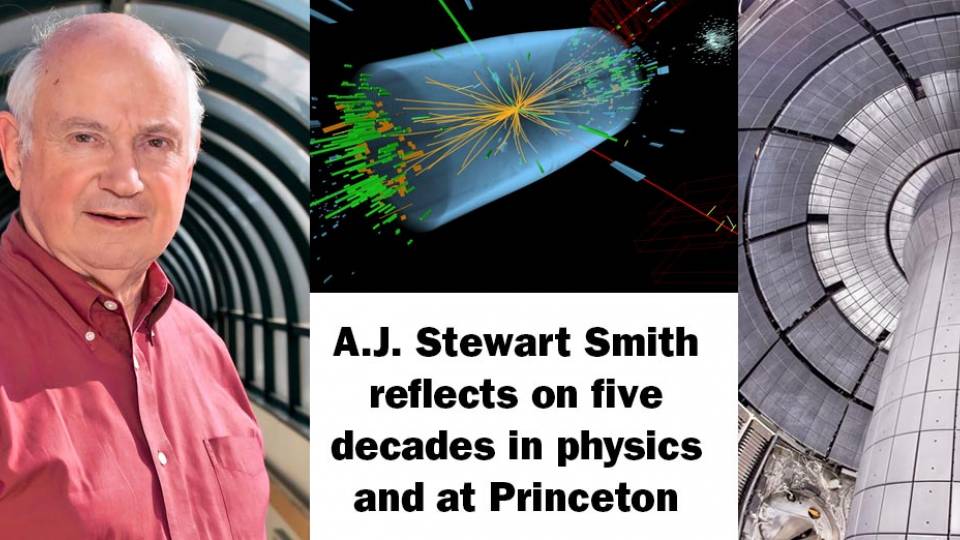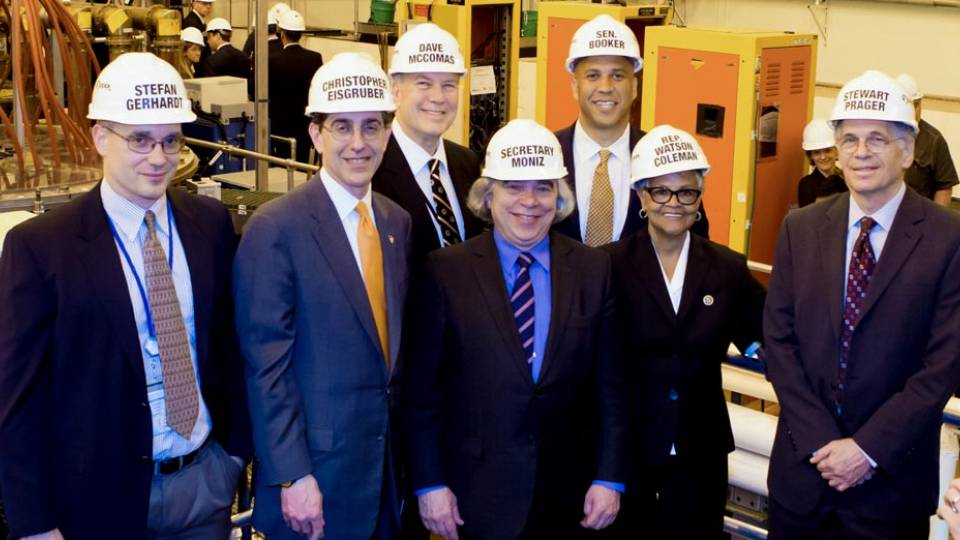Larry Bernard, a proven developer of strategic communications programs, has been named director of communications for the U.S. Department of Energy's Princeton Plasma Physics Laboratory (PPPL), effective Dec. 14. PPPL is the nation's leading center for the exploration of plasma science and magnetic fusion energy.
Bernard has developed highly successful internal and external communications programs in the life sciences industry. His positions have included senior communications manager at Amgen, a major biopharmaceutical company; senior manager for worldwide R&D and medical communications at pharmaceutical giant Pfizer Inc.; and most recently senior communications director at a national health care policy think tank.
His wide-ranging journalistic experience includes service as assistant director and senior science editor of the Cornell University News Service; science writer and reporter for the News/Sun-Sentinel in Fort Lauderdale, Florida; and science editor at the University of Illinois at Urbana-Champaign.
"Larry arrives at an exciting time for the laboratory," said PPPL Director Stewart Prager. "We have completed construction of the National Spherical Torus Experiment-Upgrade, our major fusion facility, and are about to embark on an immensely compelling research program. Communicating its findings and those of our other cutting-edge programs will broaden and deepen awareness of the laboratory. We also strive to communicate the progress in fusion and plasma science that occurs across the nation. We welcome Larry Bernard and are delighted to have his expertise to lead this vital effort."
Bernard holds bachelor's and master's degrees from Northwestern University's Medill School of Journalism. He will lead the PPPL communications team and create and implement a plan to increase the visibility of the laboratory, especially its leadership role in the science and technology of magnetic fusion energy research and the science of plasma physics. He will advise PPPL leadership on communications matters and serve as a spokesperson for the laboratory.
"It's truly an honor to work at such an illustrious laboratory with such distinguished scientists and staff," Bernard said. "It's an exciting opportunity, and a privilege, to be a part of something so special — creating the means for virtually limitless energy for all mankind. I'm looking forward to communicating the results of the research by the brilliant staff of the PPPL."
PPPL, on Princeton University's Forrestal Campus in Plainsboro, New Jersey, is devoted to creating new knowledge about the physics of plasmas — ultra-hot, charged gases — and to developing practical solutions for the creation of fusion energy. Results of PPPL research have ranged from a portable nuclear materials detector for anti-terrorist use to universally employed computer codes for analyzing and predicting the outcome of fusion experiments. The laboratory is managed by the University for the U.S. Department of Energy's Office of Science, which is the largest single supporter of basic research in the physical sciences in the United States, and is working to address some of the most pressing challenges of our time. For more information, please visit the Office of Science website.


